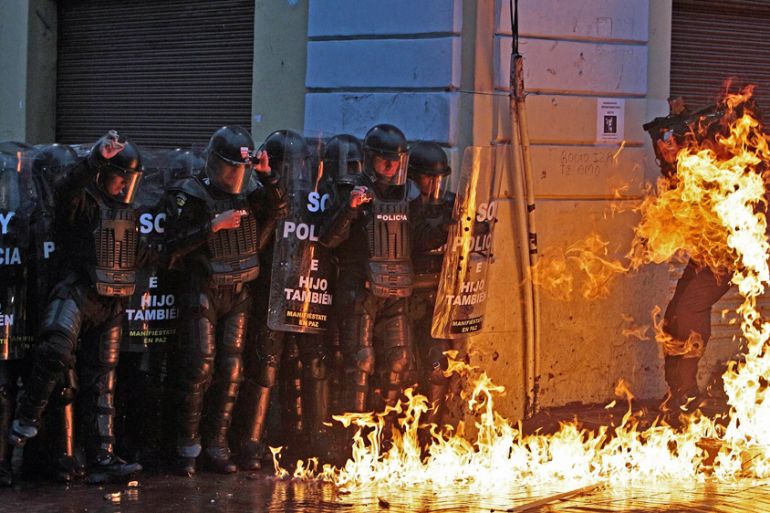How long will Ecuador’s good times last?
The money fuelling Rafael Correa’s popular presidency might be running out as oil prices show no signs of recovering.

The first time I returned to Ecuador after several years, I was impressed by the astonishing rate of public investment that was clearly everywhere.
A gleaming new airport has replaced the drab 1960s air terminal that used to sit in the middle of Quito, the country’s capital. A new four-lane highway circles the capital, and construction crews are evident anywhere you look.
Keep reading
list of 4 itemsWhat role do US tech giants play in powering Israeli war crimes?
Jobless engineers, MBAs: The hidden army of Indian election ‘consultants’
ByteDance prefers TikTok shutdown in US over sale: Report
At first glance, Ecuador is booming. Streets are bustling, malls and shopping plazas buzz with activity.
Life is good. Until you speak to economists and political analysts who are afraid the good times could soon come to a screeching halt.
When President Rafael Correa took office in 2007, he quickly embarked upon an ambitious public-spending programme that was mostly fuelled by high oil prices.
The jobs he created, social programmes he enacted for the poor, and new legislation aimed at making the country a more equitable place to live made him both popular and controversial.
A friend of mine who belongs to one of Ecuador’s wealthiest families pretty much summed it up when she told me over dinner once that if she did not have the surname she had, she would love Correa and his efforts to make the country more equal.
But the money fuelling Correa’s controversial policies might be running out. Oil prices do not seem to be going anywhere near their high of $107 a barrel.
Standard & Poor’s, the rating agency, says Ecuador’s budget deficit stands at 4.7 percent of GDP and some economists say it could rise to as much as seven percent by the end of 2015.
China, eager to make new friends in Latin America, has offered help and so far extended more than $5bn in credit to Ecuador.
But that might be one of the only places Correa might be able to turn to for more cash.
When he took office in 2007, the newly elected president declared a moratorium on the country’s foreign debt, which endeared him to many of those who voted him into power, but scared off traditional sources of credit.
He then also refused to create a stabilisation fund for rainy days, freeing up more cash for the public works that made him so popular.
Today, the fear is that those decisions might come back to haunt him. Correa asked his mid- and high-level government officials to take 10 percent pay cuts and has raised taxes on about a third of all imports, in some cases by up to 45 percent on goods such as television sets.
So is Correa still popular?
Passengers milling about Mariscal Sucre Airport in Quito seem happy with the shiny new facility and particularly grateful for the wide runways that are a far cry from the landing strip that was squeezed in between highrises and residential buildings at the old airport.
Those who have construction jobs and more access to better medical care and schooling certainly are not complaining.
But I just have to wonder if they aren’t asking themselves how long the good times might last.